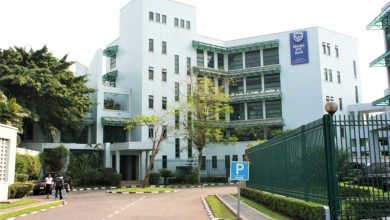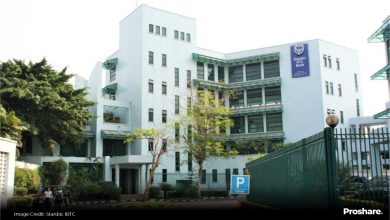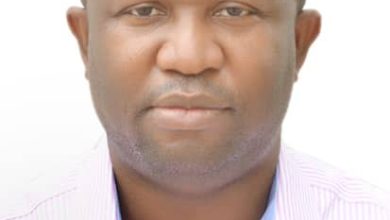Tinubu :Reform Grenades and the Market Forces

On taking the oath of office on May 29, 2023, Mr. Bola A. Tinubu, Nigeria’s 16th president, said, inter alia, “the question we now ask ourselves is whether to remain faithful to the work inherent in building a better society or retreat into the shadows of our unmet potential. For me, there is but one answer. We are too great a nation and too grounded as a people to rob ourselves of our finest destiny”. There is no doubt that Mr. Tinubu’s speech will stand in history as one of the most patriotic inaugural speeches since the commencement of the fourth republic. Such a great speech could come from long-nurtured dreams or visions, which could translate to great goals and incredible outcomes. However, talk is cheap, they say. It can either be a dream come true or a dream marred by pushbacks. Nonetheless, it’s during wars that generals are made!
From subsidy removal to the promise of housecleaning at the CBN and exchange rate unification, the market has responded with a good nod. The market is a good rewarder for those that diligently do its bidding, but it could be vicious in punishing those that go against its dictates. It is a ruthless king. In the words of Ludwig von Mises, “the market economy … does not respect political frontiers. Its field is the world”. The market expectation is that the subsidy removal will be sustained, multiple currency practices will be scrapped, fiscal consolidation will be prioritized, pro-investment reforms will be emphasized, and sustainable and balanced growth will be given preeminence. Indeed, Mr. President seems to have sacrificed his presidential honeymoon for reform grenades.
However, there could be pushbacks. Nigeria is known for political clientelism and entrenched vested interests. now elected, it is expected that President Tinubu will submit the list of nominated cabinet members for legislative screening. It is believed that the choice of cabinet members will determine whether the reform momentum will be sustained or not.
Petrol Subsidy Removal
The President announced that “fuel subsidy is gone” during his inaugural speech. He explained that fuel subsidies are no longer sustainable and that there is a need to re [1]channel the wasteful spending into productive expenditures such as public infrastructure, education, and health care. Although many analysts considered this bold and decisive, the immediate market reaction was mixed. Nigeria’s equities market gained N1.51 trillion after the announcement of the removal of petrol subsidy, with the all-share index rising by 5.2% to 55,738.35 and market capitalization spiking to N30.3 trillion from N28.8 trillion. Also, Nigeria’s dollar bond market rallied, with the longer-term bonds increasing by about 2%, its highest gain in one month.
Nigeria’s subsidy regime epitomizes monumental waste and inefficiency, with available evidence showing that the total subsidy bill in 2022 (N4.39 trillion) exceeded the budgets of about 21 states put together. It also exceeded FGN 2022 capital expenditure (N1.893 trillion) by about 132%. There is no doubt that subsidizing 66 million liters of petrol per day, out of which 44 million liters were smuggled, is a deadweight loss.
However, a nation with 133 million (63%) multidimensionally poor citizens and only about 45% of its citizens connected to the national grid will, no doubt, face a pushback to subsidy removal. However, as Figure A.1 clearly shows, subsidy spending seems to worsen rather than ameliorate the poverty incidence in Nigeria. Tinubu had barely finished the announcement when the dealers began hoarding petroleum products, resulting in long queues at petrol stations. The NNPC then rolled out a new list of petrol prices, with differentiated pricing across states. Currently, petrol sells for between N488 and N550 per liter, representing more than 150% price hike.


The government will also need to demonstratively prove to the citizens that the savings from subsidy removal will be invested in productive infrastructure that will have a direct positive impact on households in the long run. This notwithstanding, the government must immediately communicate its palliative plans to cushion the effect of subsidy removal on the populace.
Monetary Policy Housecleaning
The President promised to initiate housecleaning exercise of the monetary authorities. The implementation of monetary policy in the past decade has been anything but stellar. Many analysts argue that the central bank is not independent and politically detached. The monetary policy framework of the central bank (in practice, not in principle) can best be described as unclear. The goal of monetary policy is generally to achieve price stability while also promoting sustainable economic growth and full employment. Price stability is the primary goal, while full employment and sustainable growth goals are secondary.
In what seems to be the beginning of the housecleaning exercise as promised, the CBN governor, Mr. Emefiele, was suspended and subsequently arrested for questioning by the security operatives. Following the suspension of the apex bank chief, the bond and equities markets rallied on Monday and Tuesday this week, respectively. On Monday (June 12), the Nigerian dollar bond outperformed other emerging market bonds. Bloomberg reported that the dollar bonds maturing in 2051 rose more than 3% to as high as 73.74, the biggest gain this year. According to the JPMorgan index, the premium investors demand to hold Nigerian debt over US Treasuries fell by 46 basis points to 710, the biggest drop year-to-date. Similarly, the Nigerian stock market jumped by 4% on Tuesday (June 13), the first trading day after the suspension of the CBN governor. Since the inauguration of President Tinubu, the Nigerian equities market has outperformed its peers, gaining 13.2% in the past two weeks.
Redefining the Monetary Policy Framework
One of the areas the housecleaning exercise should focus on is redefining the monetary policy framework. A monetary policy framework, which is a set of principles and strategies that guide a central bank in conducting monetary policy, plays a crucial role in the effectiveness of monetary policy. These frameworks include inflation targeting, exchange rate targeting, money supply targeting, and interest rate targeting. First, the CBN needs to be clear on what its primary mandate is: price stability, low unemployment, or economic growth. The CBN cannot be a jack of all trades! A clear and well-defined mandate can help guide the central bank’s decisions and communicate its policy objectives to the public, which can increase the credibility of its actions and help anchor inflation expectations.
The CBN also needs to be clear on its monetary policy framework: explicit inflation targeting, implicit inflation targeting, exchange rate targeting, or money supply targeting. A well [1]designed framework can help ensure that the central bank’s monetary policy decisions are transparent, credible, and consistent over time, which can enhance the effectiveness of its actions in achieving its policy objectives. Currently, the CBN has a flexible inflation rate of 6–9%. Since 2000, Nigeria has never met the lower band of the target (6%). The upper band of the target (9%) was also exceeded, except in 2006, 2007, 2013, and 2014.
The effectiveness of monetary policy also depends on a number of factors, including the structure of the financial system and the transmission mechanism of monetary policy. Operating a tight monetary policy and, in the same breath, monetizing government debts and “sharing intervention funds” is, no doubt, a recipe for disaster.

Unified Exchange Rate and Low Interest Rate
Tinubu had said he would ensure low interest rates and unified exchange rates. First, the interest rate is a number; it is determined by economic fundamentals such as demand for money, supply of money, and inflationary pressure. To achieve low interest rates without the Turkish experience will require achieving low inflation first. Nigeria’s inflationary pressure is driven by exchange rate passthrough, energy prices, money supply saturation, fiscal deficit monetization, and supply shocks.
Recently, the CBN announced the adoption of the “willing-buyer-willing-seller model” as well as a single exchange rate window. This new exchange rate framework is expected to increase transparency in the forex market, reduce exchange rate risks and transaction costs, and buoy investor confidence. However, exchange rate unification cannot be achieved by announcing an exchange rate as the unified rate. No! There must be a systematic and coordinated program for achieving unification through convergence. If the exchange rates are unified at the parallel market rate of N750/$ or the purchasing power parity rate of N685/$ and the restrictions are removed, there could be increased forex inflow through the official channel. The ease in forex demand pressure at the parallel market could strengthen the naira.
However, beyond announcing a unified rate, exchange rate management must prioritize forex demand and supply fundamentals over administrative control. It must be noted that the autonomous market is a “black market”. It is not a creation of the law but of a market supply-demand gap. If the exchange rate arbitration cabals are not dismantled, devaluing the exchange rate may not be a silver bullet.
Economy
On the economy, the president promised to “target higher GDP growth and to significantly reduce unemployment”. It’s no brainer to know that Nigeria needs output growth as much as one need air. After growing the economy at an annual rate of 7.6%, 7.6%, and 6.4% under Obasanjo, Yar’Adua, and Jonathan, respectively, the economy stagnated at an average annual growth rate of 1.4% under Buhari’s administration. In fact, in dollar terms, the output level fell to $477.4 billion under Buhari’s administration from $568.5 billion under Jonathan’s administration in 2014. In the eight years of Obasanjo’s administration, the national output rose by 287.6% to $222.6 billion from $57.5 billion in 1999.
Although Buhari’s administration was confronted with several headwinds, including dwindling oil prices (2014–2017), the COVID-19 lockdown (2020), and the Russia–Ukraine war (2022), there is no doubt that the economic management under his watch was poor and disoriented. Economic growth was partly dwarfed by heightened macroeconomic instability, including a currency crisis, spiraling inflation, stagnating total factor productivity, a forex market crisis, dwindling revenue, and a ballooning debt profile.
Some of the structural constraints that have undermined economic activity in the past eight years include worsening insecurity, a dearth of requisite infrastructure (e.g., electricity, roads, etc.), an obstructive labour market, and endemic corruption. The president had identified some of the priority constraints to deal with, viz., electricity, industrial, and budgetary reforms.

In recent times, the industry has faltered, contracting by 0.5% and 4.7% in 2021 and 2022, respectively. To spur growth, Nigeria must focus on export-led, investment-led, and balanced growth. The government must be ready to deal with economic and regulatory terrorists who are committed to frustrating the government’s reform agenda for personal aggrandizement. The ugly trend of dwindling foreign investment must be reversed, not just by taking advantage of capital flow push factors but by focusing on the pull factors.
Security
On security, Mr. Tinubu said, “security shall be the top priority of our administration… We shall invest more in our security personnel, and this means more than an increase in number. We shall provide better training, equipment, pay, and firepower”. In the past 13 years, Nigeria has been battling worsening insecurity. In 2022, it was ranked the 6th most terrorized country in the world. According to the Nigeria Security Tracker, a total of 63,111 non-natural deaths were reported in the past eight years as a result of banditry, Boko Haram, and other outlawed non-state actors.
Nonetheless, government security spending has increased geometrically in the past decade. With about 370,000 police officers (or a police-to-citizen ratio of 1:580) and nearly 230,000 military officers (or a military-to-citizen ratio of 1:930), there is no doubt that Nigeria is relatively under policed. Investment in military armament is imperative. However, the government must go far beyond the business [1]as-usual practice of spending money without getting value for such expenditure. Beyond equipment and recruitment, the security architecture must be overhauled. The 3.6 million farmers who are currently displaced in Nigeria need to return to their farms. The security KPI must move from expenditure to incidence of insecurity






